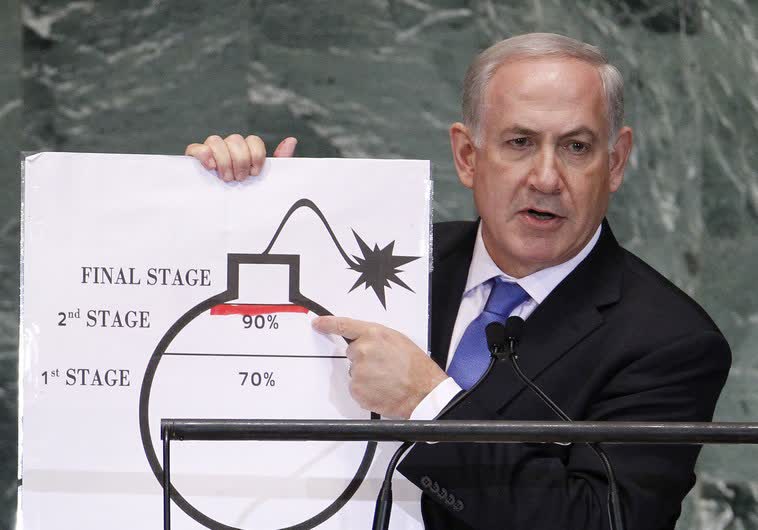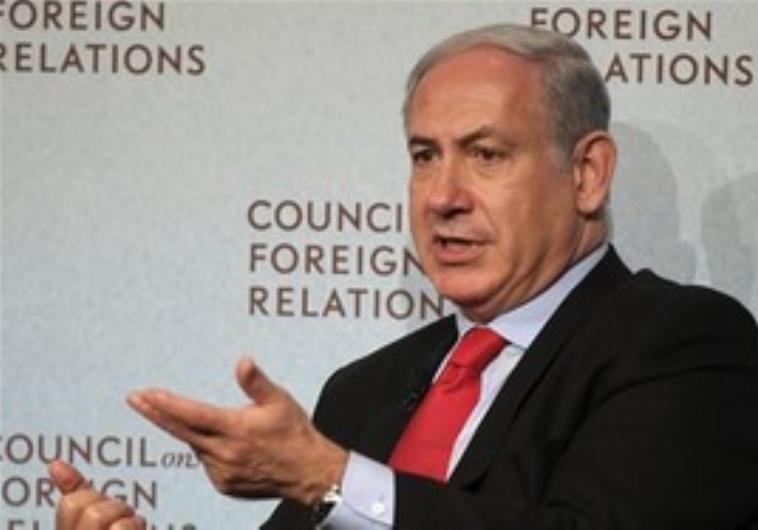The Conditions for ending the war
This war will not end with Hamas in control of Gaza and continuing to threaten Israel’s security. The war will not end without the hostages being brought home. The war will not end unless the Gaza-Egypt border is secured against smuggling above ground and below. Those are the conditions, as I understand them, for Israel to end the war in Gaza. But even if all of these conditions are met and Israel remains in Gaza, the war will not end. Continued Israeli military presence in Gaza will guarantee continued armed insurgency against Israeli troops and will guarantee continued support for Hamas from the population in Gaza. Israel cannot defeat the idea of Hamas and the support for Hamas as long as Israeli troops remain in Gaza. Hamas will not be defeated entirely until the occupation ends in the West Bank as well and a Palestinian state exists and is recognized next to Israel. Hamas emerged and grew powerful in response to the occupation and the failure of the peace process. While Israel cemented the Hamas control of Gaza as part of the overall strategy to prevent the realization of the two-states solution, the refusal of Israel to negotiate with and to empower Palestinians who did seek peace was the fuel that powered Hamas’ militarization.
Some historic retrospect on Hamas
In historic retrospect Israel licensed and legalized and even supported the registration and activities of Islamic organizations in Gaza founded by Sheikh Ahmad Yassin already in the 1970’s. These organizations were viewed by Israel’s military government in Gaza as a counter to the Palestinian national liberation movements which were part of the Palestine Liberation Organization led by Yasser Arafat. Those Islamic organizations were building public support, developing cadres of leaders, organizing mechanisms of financing, and building a clandestine terrorist organization. The Islamic University of Gaza was a base for recruiting, training and in the School of Engineering (the nicest most modern building on campus built with the assistance of USAID) they developed weapons including the first rockets.
Ariel Sharon’s surprising decision to unilaterally disengage from Gaza presented at the Herzliya Conference in December 2003 was not a sudden awakening and desire to enable the Palestinians to have independence, starting with Gaza. In October 2003, the Israeli-Palestinian Geneva Initiative was launched after a year of secret negotiations between former Israeli and Palestinian negotiators. The Geneva Initiative presented a detailed permanent status agreement between Israel and the PLO for a viable two states solution. World leaders responded to the publication of the Geneva Initiative with embracing support. The US State Department indicated at the time that the US Administration was considering voicing support as well. At that point Sharon came up with the idea of disengagement through which he succeeded in reining in global support for his initiative, and not for Geneva.
In April 2005, prior to the implementation of the disengagement US Secretary of State Rice announced: “UN Secretary General Annan, EU High Representative Solana, Russian Foreign Minister Lavrov and I all agree that we must seize the moment and secure the very best person available for this critical mission of Special Envoy for Gaza Disengagement. That is why we have agreed on one of the world’s most skilled, experienced and dedicated public servants, Mr. James Wolfensohn, the President of the World Bank.” But Sharon had no intention of coordinating the disengagement with the Palestinians. President Mahmoud Abbas was elected in January 2005, following the death of Arafat in November 2004 on a ticket of clear and firm opposition to the militarization of the second intifada and in a strong belief that the State of Palestinian would only be born through negotiations with Israel. Abbas’ national security advisor, Mohammed Dahlan was instructed by Abbas to create a disengagement authority in order to coordinate with Israel. Sharon responded that the decision to disengage was unilateral and that he would not coordinate with the Palestinians. Sharon called Abbas “a chick with no feathers” and “a non-partner”. From conversations that I had with one of Sharon’s closest advisors, I understood that Sharon planned for the Palestinians to fail in taking over Gaza and the result would be the elimination of pressure on Israel regarding the West Bank. After the disengagement, Hamas won the Parliamentary elections for the Palestinian Authority. Hamas also won the narrative – for Palestinians Hamas succeeded in evicting Israel from Gaza while Abbas and the Palestinian Authority failed.
In 2007 reflecting back on the disengagement and the Hamas takeover of Gaza, James Wolfensohn commented: “The reality is that you have 1.4 million Palestinians living in Gaza and you can’t wish them away, you can’t leave Gaza as a place where the rich and the intellectuals and the powerful can get out, and leave just the people who can’t make a living – or can make a living if they could, but have no leadership. And military use or subjugation doesn’t solve the problem, it seems to me. In the interest of Israel, in the interest of the Palestinians, there is a need to get things back to a situation where there is representation of all the Palestinian people in an entity that can deal with Israel to bring about, if Israel wishes, a two-state solution, which appears to be a thing Secretary [of State] Rice is now committed to. The situation cannot simply be allowed to lie there, because just pretending that 1.4 million people can live in a sort of prison is not a solution at all. So I think it’s going to require…some real negotiations to try and get this started.” How right he was.
Is there a diplomatic path to ending the war?
The best chances for finding a diplomatic end to the war meeting the basic conditions that Israel requires is by reaching the first phase of a negotiated ceasefire with Hamas. A ceasefire is required to get more hostages home. That will also require that Israel release a large number of Palestinian prisoners, allow for substantially more humanitarian aid to enter Gaza throughout the Strip and allowing many Gazans to return to the north of Gaza. A six-week ceasefire could provide time necessary to devise a plan that would enable both Israel and Hamas to claim elements of victory – which is what is required to end the war prior to the major ground operation between Khan Yunis and Rafah – in the remaining 20% of Gaza. If we are totally honest with ourselves, we recognize that Hamas had its victory on October 7. Breaching Israel’s border, killing such a large number of Israelis, abducting into captivity 250 Israelis, shaking Israelis’ sense of security and wellbeing to bare bones – this cannot be undone. Hamas also succeeding in bringing the Palestinian issue back to the top of the international agenda. Israel’s victory has been in successfully converting its army from an occupation police force protecting settlers into a formitable fighting force fully capable of securing Israel’s borders. Revitalizing the two states solution is not part of Hamas’ victory, because Hamas never supported that solution. It is not part of the Government of Israel’s victory, because it too does not support it. But it will be the victory for the people of Israel and the people of Palestine. That is why the United States must lead the other OECD nations to immediately recognize the State of Palestine and remove Israel’s veto from the question of Palestinian statehood.
Removing Hamas from power
In order for Hamas to accept that it will no longer rule Gaza the Palestinian Authority must be empowered to appoint an acceptable temporary Prime Minister as head of government with the authority to appoint non-partisan technocratic ministers – for both Gaza and the West Bank. President Abbas is the only person who has the authority to appoint such a person. But once that person is appointed, Mahmoud Abbas should step aside in order for the new Prime Minister to form a government of acceptable technocrats to whom Hamas will be willing to transfer authority – or in other words, will not oppose the new governing authority. Palestinian and other Arab leverage must be applied to the living military and political leaders of Hamas in Gaza to exit to Qatar. That may not happen, some, like Yehya Sinwar would probably prefer to fight to the death rather than leave. He cannot remain alive in Gaza – there is no end to the war if Sinwar remains alive in Gaza.
Securing Gaza
The new Palestinian Prime Minister with his government will request to convene a meeting in Riyadh under the auspices of the Saudis with the Arab states with peace agreements with Israel, perhaps with the backing of the Arab League and call for the immediate deployment of an Arab-led multi-national force for Gaza with a mandate of up to two years. The decision of this meeting should be brought to the Security Council of the United Nations for adoption with the addition of the call for an immediate ceasefire and full Israeli withdrawal from Gaza. The United States should support this resolution.
The issue of the security of the Gaza-Egypt border should be dealt with by agreement between Egypt and the United States. This border must be secured from smuggling above and below ground in order for the war to end, but it should not be done by Israel. US knowhow, technology and finance should be deployed with Egyptian labor to dig tens of meters below ground to cut off all smuggling tunnels into Gaza. US military personnel should oversee the work to ensure its completion.
The Hostages
The issue of the hostages is the most difficult and sensitive to resolve. It is very likely that Hamas does not know where every hostage is located. Without having effective control over most of Gaza is it virtually impossible for Hamas to know where they all are being held. Hamas probably does not know who is alive and who is not. There is a very high probability that many hostages are below the rubble of buildings demolished by Israel on the ground or from the air. There is a high probability that some or many of the dead hostages will never be returned. This is a very difficult situation for the families of the hostages to accept. Just as there are thousands of Gazans buried underneath the rubble of what were buildings, this too may be the fate of many Israeli hostages. Since the beginning of the war, I have maintained that the only way to bring all of the hostages home alive is through a negotiated agreement which would have to include ending the war and releasing many thousands of Palestinian prisoners in Israel. I have also emphasized that the military pressure will mainly get hostages killed. This is what I still believe. That is what is happening. There is still a chance for a partial deal with Hamas that could return tens of hostages alive; it must be done now!


